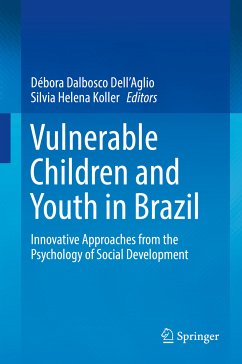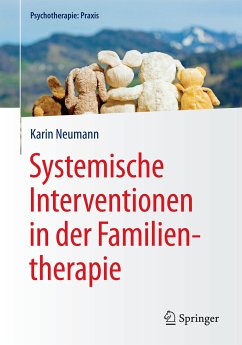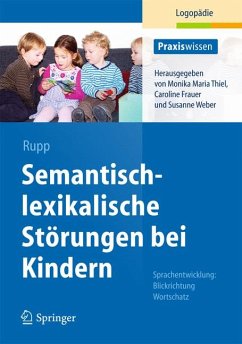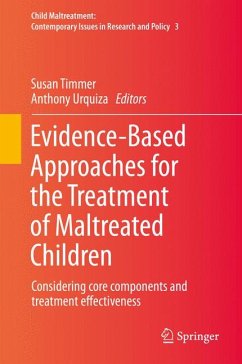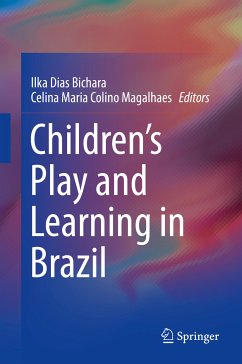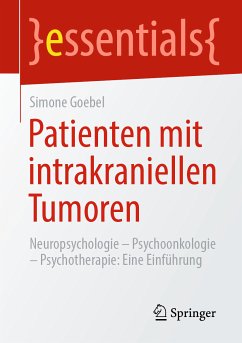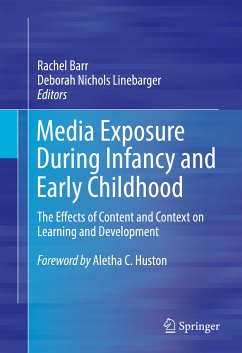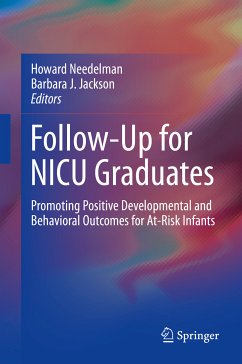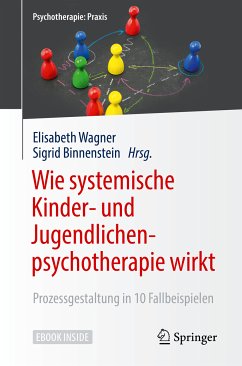
The Biology of Early Life Stress (eBook, PDF)
Understanding Child Maltreatment and Trauma
Redaktion: Noll, Jennie G.; Shalev, Idan
Versandkostenfrei!
Sofort per Download lieferbar
96,95 €
inkl. MwSt.
Weitere Ausgaben:

PAYBACK Punkte
48 °P sammeln!
This innovative collection extends the emerging field of stress biology to examine the effects of a substantial source of early-life stress: child abuse and neglect. Research findings across endocrinology, immunology, neuroscience, and genomics supply new insights into the psychological variables associated with adversity in children and its outcomes. These compelling interdisciplinary data add to a promising model of biological mechanisms involved in individual resilience amid chronic maltreatment and other trauma. At the same time, these results also open out distinctive new possibilities fo...
This innovative collection extends the emerging field of stress biology to examine the effects of a substantial source of early-life stress: child abuse and neglect. Research findings across endocrinology, immunology, neuroscience, and genomics supply new insights into the psychological variables associated with adversity in children and its outcomes. These compelling interdisciplinary data add to a promising model of biological mechanisms involved in individual resilience amid chronic maltreatment and other trauma. At the same time, these results also open out distinctive new possibilities for serving vulnerable children and youth, focusing on preventing, intervening in, and potentially even reversing the effects of chronic early trauma.
Included in the coverage:
The Biology of Early Life Stress is important reading for child maltreatment researchers; clinical psychologists; educators in counseling, psychology, trauma, and nursing; physicians; and state- and federal-level policymakers. Advocates, child and youth practitioners, and clinicians in general will find it a compelling resource.
Included in the coverage:
- Biological embedding of child maltreatment
- Toward an adaptation-based approach to resilience
- Developmental traumatology: brain development and maltreated children with and without PTSD
- Childhood maltreatment and pediatric PTSD: abnormalities in threat neural circuitry
- An integrative temporal framework for psychological resilience
The Biology of Early Life Stress is important reading for child maltreatment researchers; clinical psychologists; educators in counseling, psychology, trauma, and nursing; physicians; and state- and federal-level policymakers. Advocates, child and youth practitioners, and clinicians in general will find it a compelling resource.
Dieser Download kann aus rechtlichen Gründen nur mit Rechnungsadresse in A, B, BG, CY, CZ, D, DK, EW, E, FIN, F, GR, HR, H, IRL, I, LT, L, LR, M, NL, PL, P, R, S, SLO, SK ausgeliefert werden.



